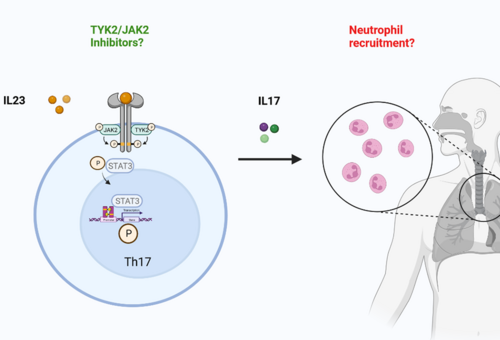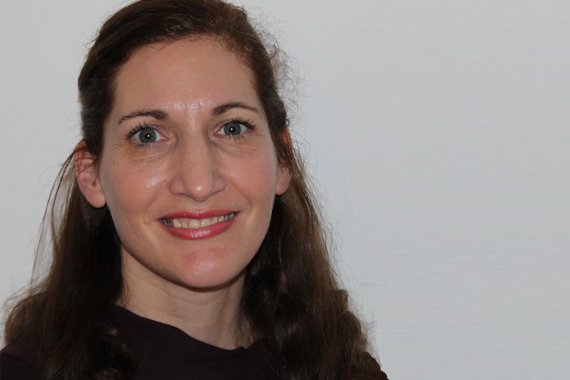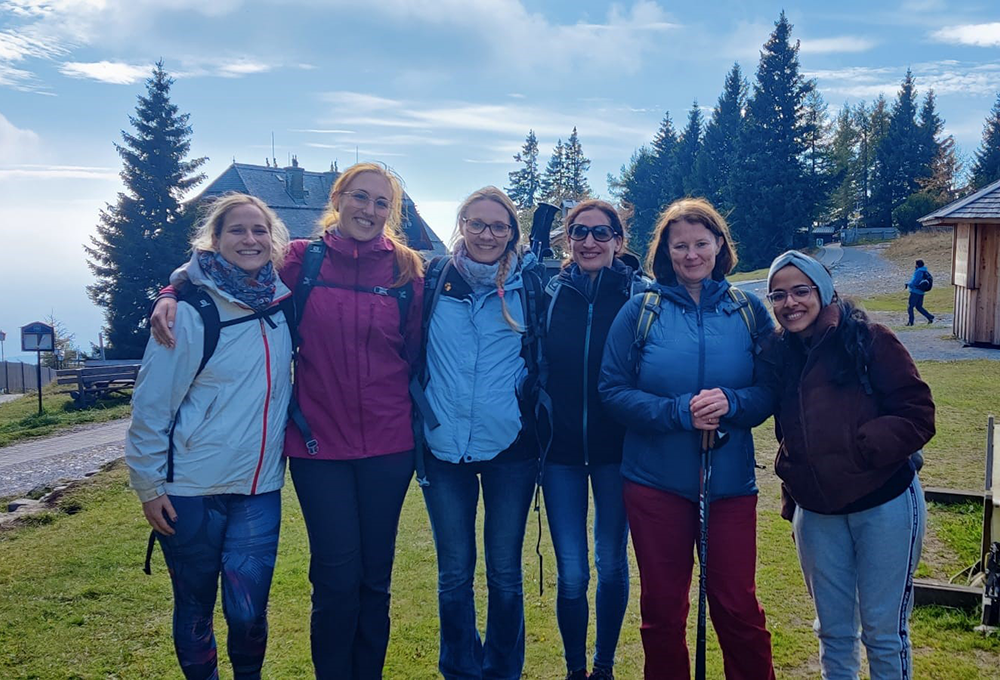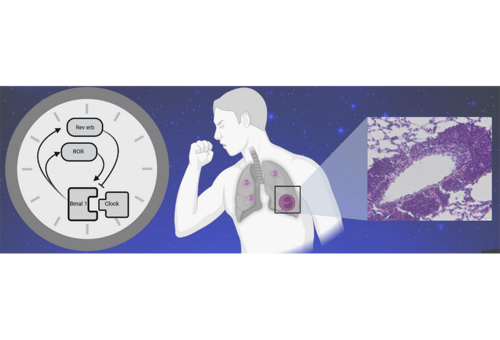-
The University
- Welcome
- Who we are
- Media & PR
- Studying
-
Research
- Profile
- Infrastructure
- Cooperations
- Services
-
Career
- Med Uni Graz as an Employer
- Educational Opportunities
- Work Environment
- Job openings
-
Diagnostics
- Patients
- Referring physicians
-
Health Topics
- Health Infrastructure
Research team Böhm
Research focus: Chronic respiratory and pulmonary diseases
PI: Eva Böhm
Focus: Our research unit is interested in dysregulated intracellular signaling pathways associated with chronic inflammatory processes with a main focus on eosinophilic disorders such as bronchial asthma and eosinophilic esophagitis.
Network: In vitro and in vivo studies on mechanisms of eosinophilic inflammation are performed by the research team at the Division of Pharmacology. Mutual collaborations exist with the research groups of Akos Heinemann (biology of lipid mediators), Rudolf Schicho (histology and fluorescence microscopy) and Gunther Marsche (lipid metabolism). Patient samples are provided in scientific collaboration by the Division of Respiratory Medicine and Gastroenterology. Close cooperation also exists with international partners.
Projects
The molecular circadian clock in eosinophilic disorders
- Asthma is characterized by a distinct circadian signature. This circadian rhythmicity is reflected in both nocturnal respiratory symptoms and increased eosinophil inflammation in the early morning hours. The mammalian central pacemaker is localized in the suprachiasmatic nucleus of the hypothalamus and coordinates subordinate, autonomous, molecular circadian clocks present in all organs and cells of the body. These molecular circadian clocks are a complex network of transcription-translation feedback loops comprising transcription factors and nuclear receptors such as BMAL1, CLOCK, PER, CRY, REV-ERB, and ROR. Disruption or disturbances of the molecular circadian clock increase the risk for numerous diseases such as psychiatric, metabolic and inflammatory disorders. In particular, the nuclear receptor and transcriptional repressor REV-ERB alpha is known to gate between the molecular circadian clock and the immune system. In this project we investigate the role of the molecular circadian clock in asthmatic patients, patients with eosinophilic esophagitis and respective experimental models. The aim is to determine whether the components of the molecular circadian clock can be used as prognostic markers or as therapeutic targets for pharmacological intervention.
- Duration: 2020-2024
- Funded by: FWF, Medical University of Graz (DOC 129, RespImmun)
- Project partners: Leigh Marsh (Ludwig Boltzmann Institute for Pulmonary Vascular Research, Graz); Akos Heinemann (Division of Pharmacology, MUG); Eva Gruden/Rudolf Schicho (Division of Pharmacology, MUG), Robert Gurke (University of Frankfurt), Hannah Durrington (University of Manchester), Elizabeth Jacobsen (Mayo Clinic Scottsdale).
The IL-23/Th17 axis in chronic respiratory diseases
- Although glucocorticoids are the gold standard of anti-inflammatory therapy in asthma and COPD, there are still steroid-resistant patients with poor treatment response. Interleukin-23 (IL-23), activated Th17 lymphocytes and neutrophil granulocytes seem to play a crucial role in the development of steroid resistance. IL-23-induced JAK/STAT signaling mediates the expression and synthesis of other cytokines such as IL-17A, IL-17F, IL-21 and IL-22. IL-17 in turn stimulates the release of G-CSF, IL-8 and IL-6 and thus promotes the development of neutrophilic inflammation. In this project we investigate the activation of the IL-23/Th17 axis and the JAK-STAT pathway in patients with refractory forms of bronchial asthma and COPD, and aim to evaluate the therapeutic potential of JAK inhibitors to break steroid resistance.
- Duration: 2021-2025
- Funded by: FWF, Medical University of Graz (DOC 129, RespImmun)
- Project partners: Philipp Douschan (Pulmonology, Med Uni Graz), Peter Valentin Tomazic (ENT, Med Uni Graz)
Division of Pharmacology
Research gallery

Figure 2
The IL-23/Th17 pathway in chronic airway inflammation. IL-23-induced JAK/STAT signaling mediates the expression and synthesis of other cytokines from polarized Th17 cells. IL-17 in turn stimulates the release of G-CSF, IL-8 and IL-6 and thus promotes the development of neutrophilic inflammation. Blocking the IL-23/TH17 axis might be a therapeutic option to treat neutrophilic lung inflammation.
Image size: 1000 x 680
File size: 191 KB





